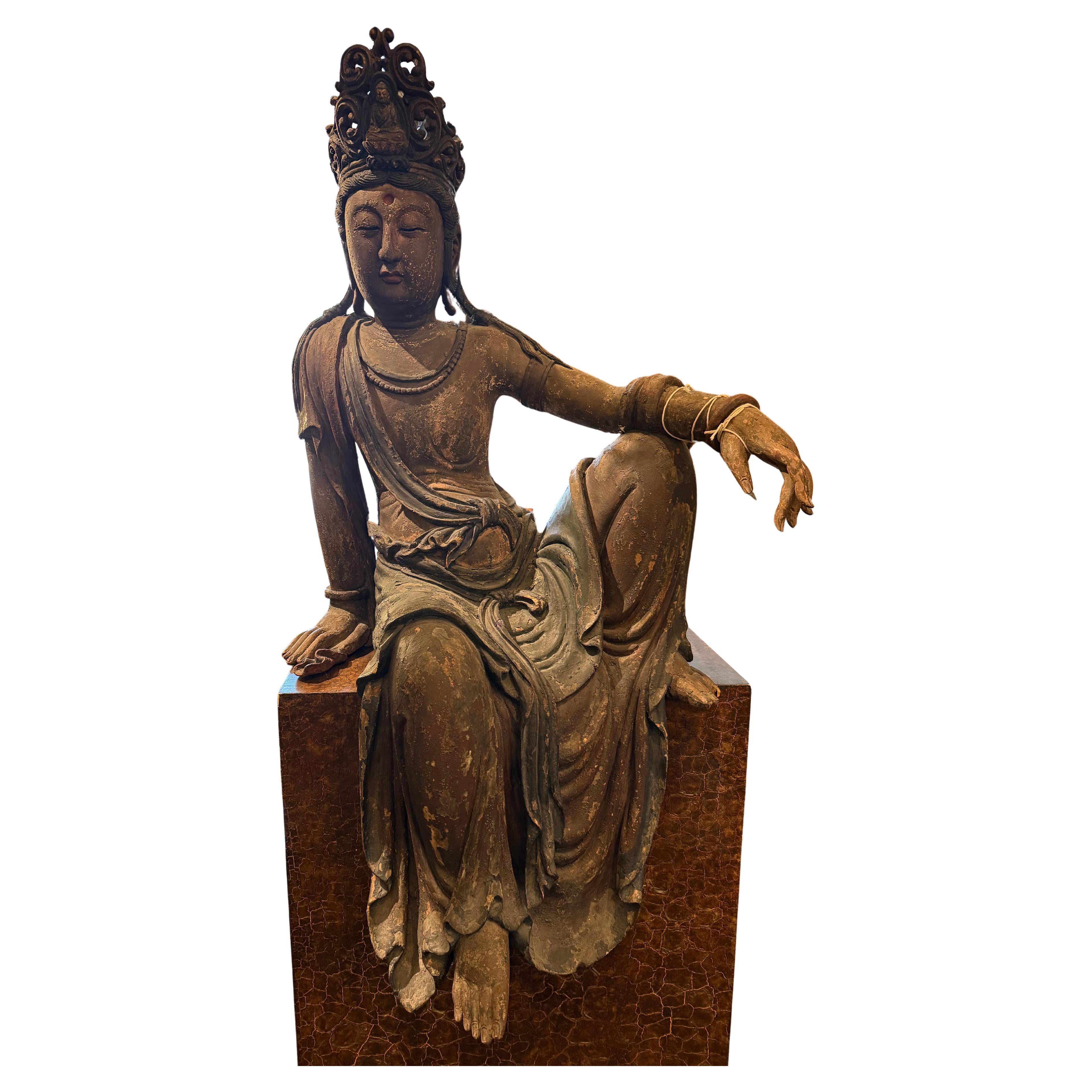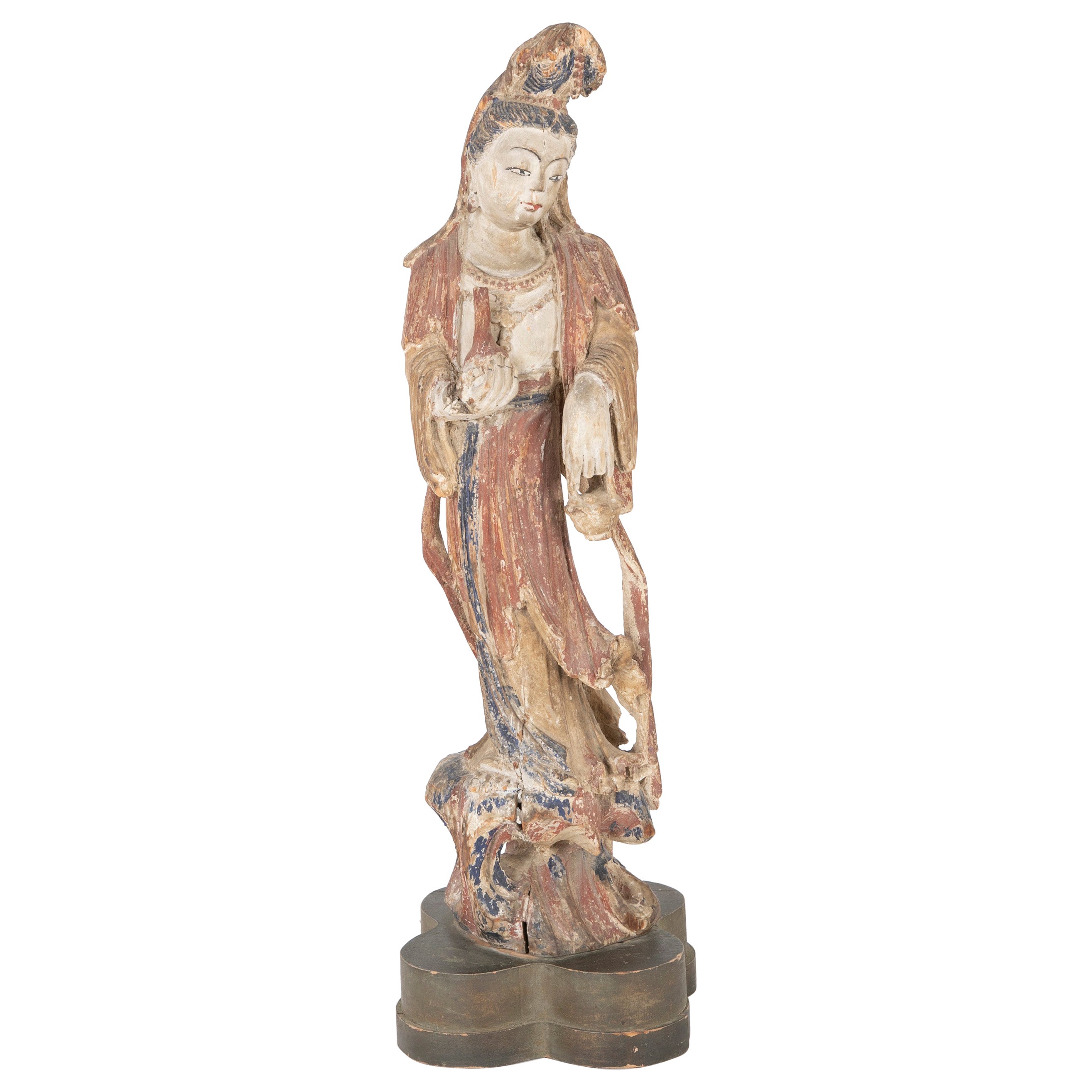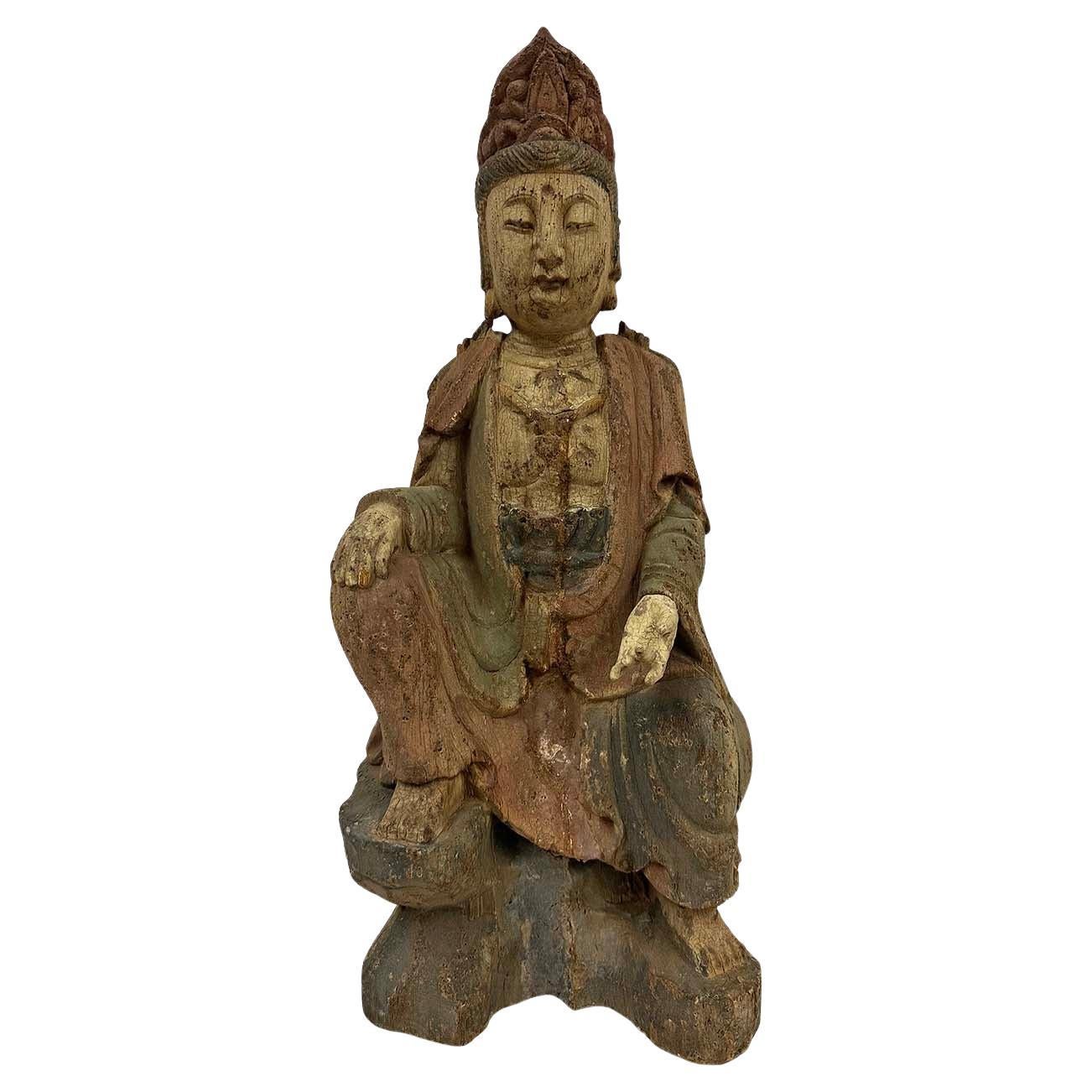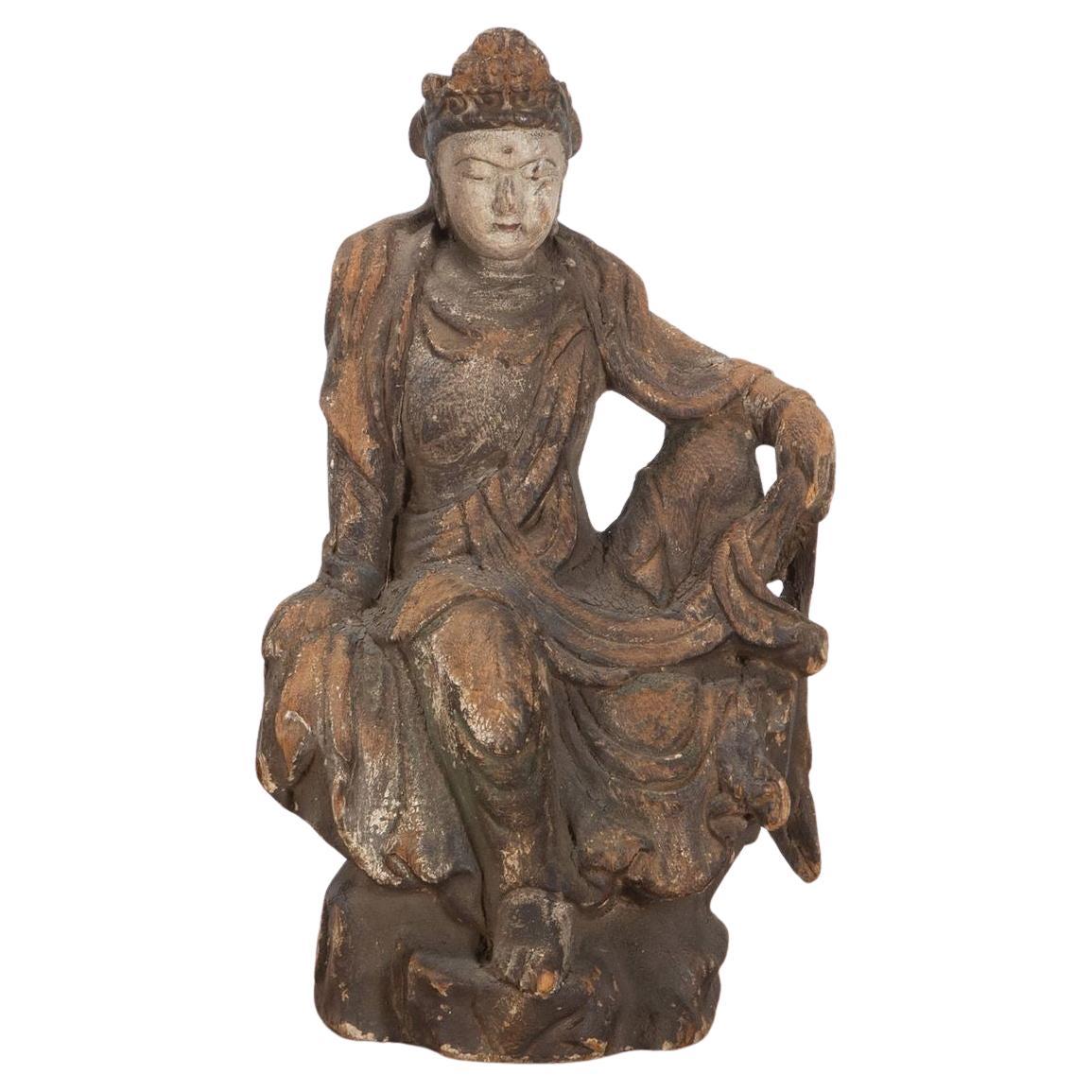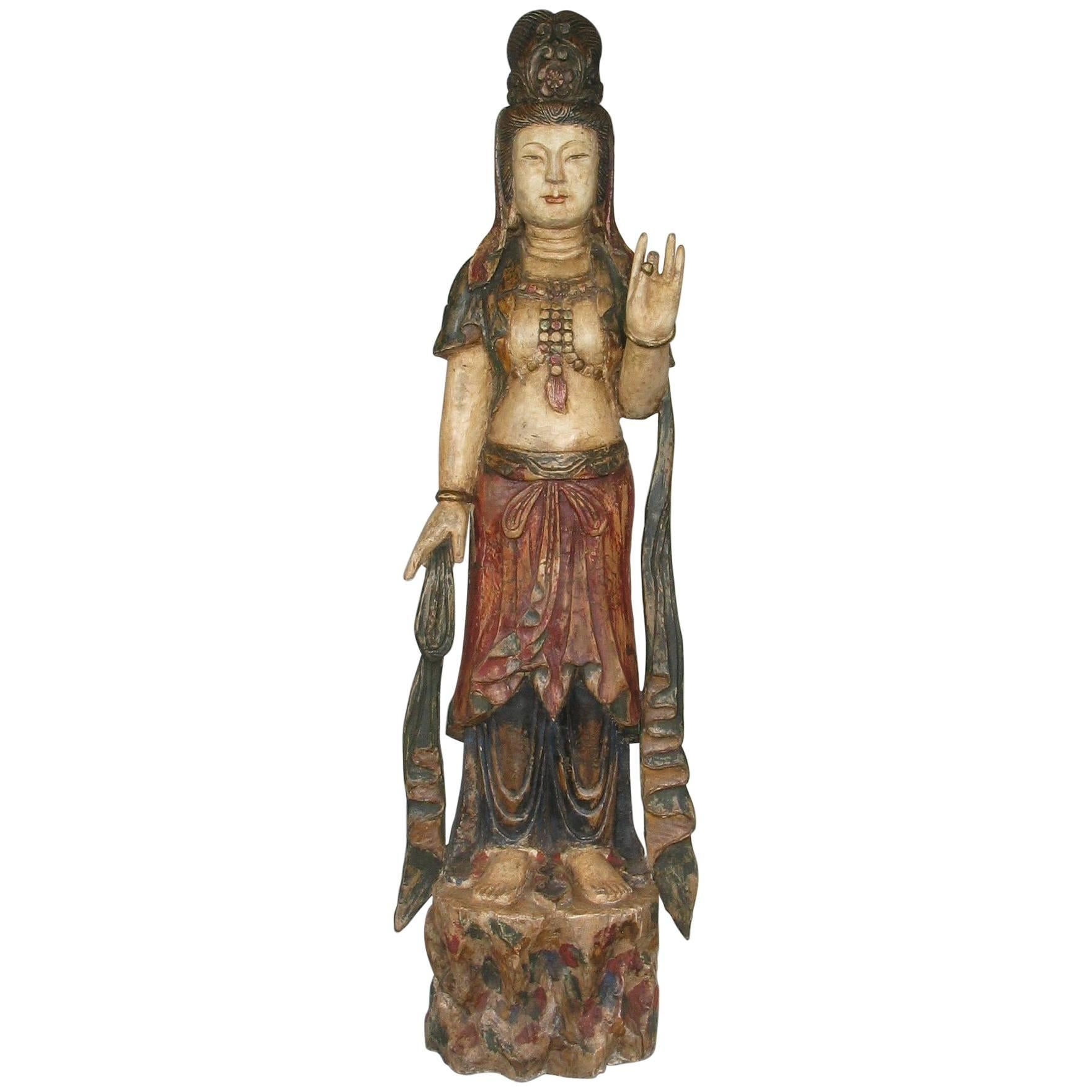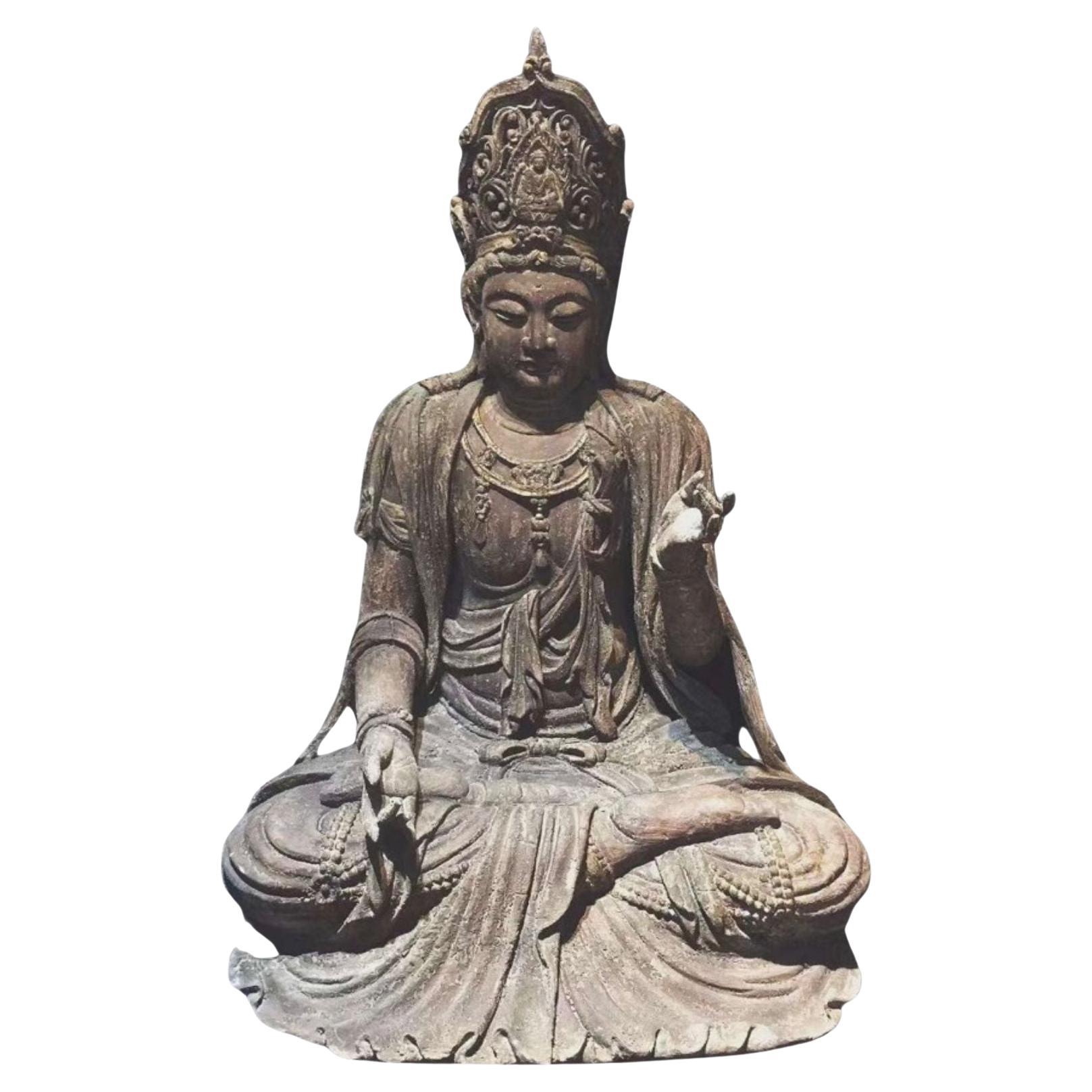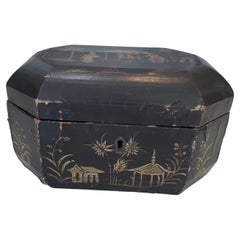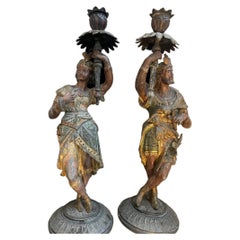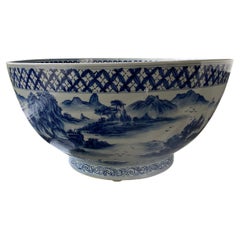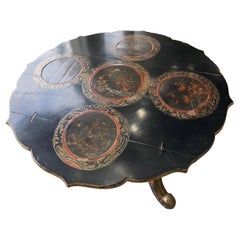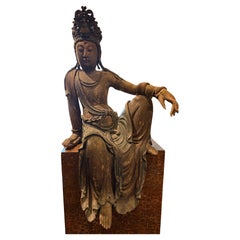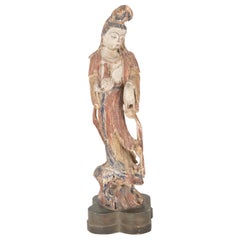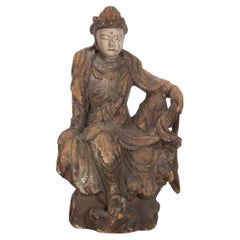Items Similar to Early 20th Century Ming Dynasty-inspired Guanyin Wooden Sculpture
Want more images or videos?
Request additional images or videos from the seller
1 of 5
Early 20th Century Ming Dynasty-inspired Guanyin Wooden Sculpture
$4,200
£3,211.12
€3,698.57
CA$5,885.49
A$6,570.59
CHF 3,442.89
MX$80,430.51
NOK 43,724.77
SEK 41,226.90
DKK 27,602.78
Shipping
Retrieving quote...The 1stDibs Promise:
Authenticity Guarantee,
Money-Back Guarantee,
24-Hour Cancellation
About the Item
Inspired by the Ming Dynasty, this elegant statue of Guanyin, Goddess of Compassion, was hand carved in the 20th century. The artist captures the timeless and spiritual aura of Guanyin. Her flowing robes and symbolic motifs reflect ancient traditions while her serene countenance emanates tranquility and warmth.
- Dimensions:Height: 30 in (76.2 cm)Width: 24 in (60.96 cm)Depth: 14 in (35.56 cm)
- Style:Ming (In the Style Of)
- Materials and Techniques:
- Place of Origin:
- Period:
- Date of Manufacture:1900-1940
- Condition:Wear consistent with age and use. Minor losses. Minor structural damages. Minor fading. Good overall condition with organic wear of the wood on the back of the piece.
- Seller Location:West Palm Beach, FL
- Reference Number:1stDibs: LU8442238487332
About the Seller
5.0
Vetted Professional Seller
Every seller passes strict standards for authenticity and reliability
1stDibs seller since 2023
11 sales on 1stDibs
- ShippingRetrieving quote...Shipping from: West Palm Beach, FL
- Return Policy
Authenticity Guarantee
In the unlikely event there’s an issue with an item’s authenticity, contact us within 1 year for a full refund. DetailsMoney-Back Guarantee
If your item is not as described, is damaged in transit, or does not arrive, contact us within 7 days for a full refund. Details24-Hour Cancellation
You have a 24-hour grace period in which to reconsider your purchase, with no questions asked.Vetted Professional Sellers
Our world-class sellers must adhere to strict standards for service and quality, maintaining the integrity of our listings.Price-Match Guarantee
If you find that a seller listed the same item for a lower price elsewhere, we’ll match it.Trusted Global Delivery
Our best-in-class carrier network provides specialized shipping options worldwide, including custom delivery.More From This Seller
View All19th Century Chinese Victorian Tea Caddy
Located in West Palm Beach, FL
Hand-crafted in China for the European market, this Asian-style English black lacquered octagonal hinged tea caddy features a decorative stenciled motif of pagodas and foliage in gil...
Category
Antique Late 19th Century English Chinoiserie Tea Caddies
Materials
Pewter
Antique Pair of Cold Painted Regal Man & Woman White Meta Figural Candlesticks
Located in West Palm Beach, FL
A strikingly impressive pair of figural candle holders, cast in the form of finely modelled Regal Indian male & female figures. Each standing atop...
Category
Early 20th Century Indian Other Candlesticks
Materials
Bronze
Late 20th Century Monumental Chinoiserie Bowl
Located in West Palm Beach, FL
Very rare and unique blue and white oversized monumental chinoiserie bowl in excellent condition! Great for a large foyer, coffee table, dining table or console to fill and display o...
Category
Late 20th Century Chinese Chinoiserie Decorative Bowls
Materials
Porcelain
English 19th Century Tripod Base Lacquered Center Hall Table
Located in West Palm Beach, FL
A Chinoiserie-themed antique wood table, finished in black lacquer has red and gold etching on the top and the legs. The solid, turned central stem...
Category
Antique 19th Century British Chinoiserie Center Tables
Materials
Hardwood
Vintage English-Chinoiserie “Papier Mache” Painted Umbrella Stand
Located in West Palm Beach, FL
This sturdy and elegant English-chinoiserie umbrella stand gets its sturdiness from its metal core and its elegances from the hand painted chinoiserie nature scene on papier mâché in...
Category
Late 20th Century English Victorian Umbrella Stands
Materials
Metal
19th Century Chinese ‘Sang Bouef’ Table Lamp
Located in West Palm Beach, FL
The deep, rich, orange/red color of this 19th Century Chinese “Sang Boeuf” ceramic lamp on its wood stand adds rich depth to any room or space!
The Sang Bo...
Category
Antique 19th Century Chinese Chinoiserie Table Lamps
Materials
Ceramic
You May Also Like
An Important Chinese Carved Wood Figure of Guanyin, Ming Dynasty, 17th Century
Located in ARMADALE, VIC
An Important Chinese Carved Wood Figure of Guanyin, Ming Dynasty, 17th Century
Description:
A dignified portrayal of the bodhisattva, respl...
Category
Antique 17th Century Chinese Ming Sculptures and Carvings
Materials
Wood
Chinese Carved and Painted Wood Sculpture of Guanyin
Located in Stamford, CT
Beautiful carving of Guanyin, shown standing on a rocky outcrop, mounted on a lobed wooden base. It was once used as a lamp, and can be rewired. Nice faded painted surface.
Guany...
Category
Early 20th Century Chinese Ming Sculptures and Carvings
Materials
Wood
Early 20th Century Chinese Carved and Painted Wood Carved sitting Guan-Yin
Located in Pomona, CA
The image displays a statue of Guanyin, also known as Avalokiteshvara, a widely worshiped bodhisattva of compassion in Buddhism. It was made of camphor wood which has long history in...
Category
Early 20th Century Chinese Chinese Export Sculptures and Carvings
Materials
Wood
Early 17th Century Carved Wood Figure of Guanyin
Located in Gloucestershire, GB
17th Century carved figure of Guanyin in Rajalalitasana position.
Seated on rock with the right arm rested on the right knee. The figures are wearing loose robes that open at the ch...
Category
Antique 17th Century Chinese Figurative Sculptures
Materials
Wood
Chinese Carved Wood Standing Figure of Guanyin in the Ming Dynasty Style
Located in Ottawa, Ontario
A Chinese carved wood standing figure of Guanyin in the Ming dynasty style, with polychrome application, the hair tied back into an elaborate high chignon, with her left hand raised,...
Category
Early 20th Century Chinese Chinoiserie Sculptures and Carvings
Materials
Wood
A Large Chinese Carved Wood Figure of Guanyin, Late Qing Dynasty
Located in ARMADALE, VIC
Description:
A singular example of Guanyin. Deviating from the Bodhisattva’s conventional pose of ‘royal ease’, the figure is instead seated in the meditative padmasana, or ‘lotus position’, rendering this Guanyin something of a rarity. An Apana more typically associated with depictions of Buddhas, Guanyin assuming this pose immediately signifies this figure as one of particular spiritual reverence. Both feet are revealed crossed upon one another from beneath fabric which spills before her, her left palm turned upward with her hand resting upon her left knee and her right raised in a relaxed gesture. Adorned with a diadem housing a depiction of Amitabha Buddha, her own spiritual guide, she exudes an air of tranquil regality, further characterised by her numerous strings of beads and elaborately fastened dhoti, attire traditionally reserved for Indian princes. Though the figure’s dress is Indian her face is undoubtedly exemplifying artistic Chinese beauty standards. Her face is soft and rounded, full in both the lips and cheeks, with eyes that restfully peer down, as though she is watching over the worries of mankind with compassion.
Notes on the item:
Guanyin is the Chinese interpretation of Avalokiteshvara, the Indian Bodhisattva of compassion. The term “Bodhisattva” is derived from the Sanskrit “Bodhi”, meaning ‘awakening’ or ‘enlightenment’, combined with “Sattva”, meaning ‘spirit’ or ‘being’, referring to one on the path to achieving enlightenment. Bodhisattvas in Mayahana Buddhism are recognised as figures who have effectively achieved enlightenment yet relinquish their accension to nirvana in order to remain amongst mankind in the ultimate act of compassion to aid as spiritual guides. As such, the Bodhisattva inhabit a liminal space between samsara and nirvana; enlightened beings that maintain a relationship with humanity that buddhas cannot, as attaining Buddhahood necessitates the abandonment of all worldly attachments, including mankind. Guanyin’s very name, ‘One who hears the cries of the world’ highlights this role as a compassionate figure who acknowledges the suffering and strife of man. Along with Mahāsthāmaprāpta, a fellow bodhisattva, Guanyin serves as an attendant to Buddha Amitabha, with these three deities recognised as the Three Sages of Western Pure Land Buddhism, a sect of Mayahana Buddhism popular in East Asia.
Avalokiteshvara is commonly posited to have been adopted from Indian Buddhism into China as Guanyin around 200-400 CE, however it was the Tang dynasty (618-907) which saw the popularisation of the deity. By the Ming (1358–1644) and Qing (1644–1911) dynasties, Guanyin held the position as the most popular female deity in China. The unique state of religion in China held no monolithic canon regarding Buddhism and saw the assimilation of several belief systems, primarily Daoism, Buddhism and Confucianism. Consequently, Guanyin became a deity to be revered beyond Buddhism alone, appointed as both an official imperial deity and Daoist deity in the 12th century. Guanyin may also be seen to fulfil the role of idealised femininity as prescribed by Confucianism, with the scarcity of female Chinese deities perhaps accounting for the gradual gender shift Guanyin underwent.
The Indian Avalokiteshvara is unequivocally recognised as male, whilst the supposed gender of Guanyin remains contentious. Although there is a clear shift from the masculine Avalokiteshvara towards a more feminine representation, it is unclear if Guanyin is understood to be entirely feminine, to inhabit qualities of both genders or to be elevated beyond gender entirely, embodying neither. Depictions of Guanyin are highly androgynous, which some believe lends credence towards Guanyin symbolising the unity of dualistic forces as recognised in Daoism, displaying the anthropomorphism of yin and yang.
Comparative Analysis:
Market comparisons of similar Qing Dynasty polychrome figures of Guanyin include lot 767 (no.2) From Christies ‘Important Chinese Ceramics and Works of Art,’ New York, 25 March 2022, with the price realised USD 52,920 (Estimate USD 20,000 – USD 30,000). Christies also auctioned a comparable polychrome Guanyin...
Category
Antique Late 19th Century Chinese Qing Sculptures and Carvings
Materials
Hardwood
More Ways To Browse
Chinese Wooden Sculpture
Ming Dynasty Sculpture
Chinese Guanyin
Chinese Goddess
Antique Guanyin
Guanyin Sculpture
Ming Robe
Carved Guanyin
Chinese Wood Sculpture Ming
Ming Statue
Chinese Ming Dynasty Statues
Ming Dynasty Statue
Wood Guanyin
Wood Sculpture Ming Dynasty
Guanyin Statue
Chinese Wood Guanyin
Guanyin Carved Wood
Chinese Goddess Statue
